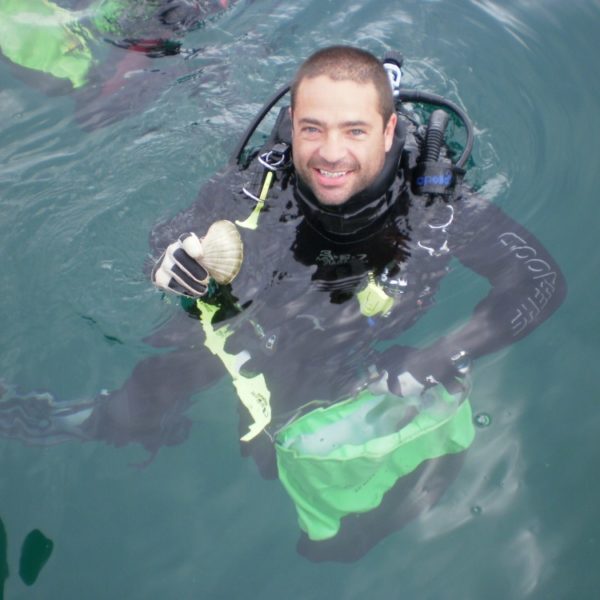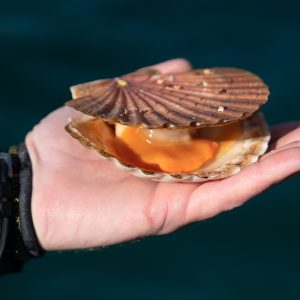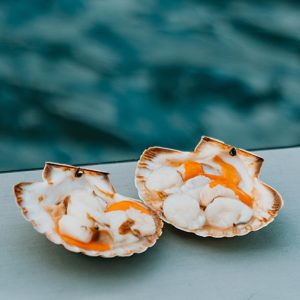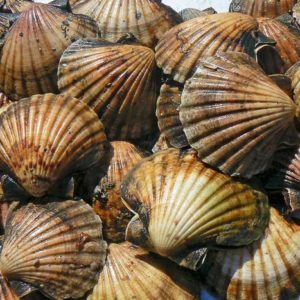Fresh scallops are one of life’s pleasures, and if you gather them yourself there is untold satisfaction in sharing that kaimoana with your family and friends. The low numbers of scallops in many traditional gathering areas means people holidaying around the Coromandel Peninsula may miss out on a meal of scallops this summer.

Reports from experienced fishers indicate that scallops are severely depleted on both sides of the Coromandel. There are also rising concerns about the environmental damage being caused by commercial and recreational dredges as people randomly search for remnant scallop populations.
One of the attractions of driving all the way to Opito Bay, past Whitianga, is the prospect of clear water and a feed of fresh scallops. In Opito Bay the lines between the permitted commercial zone and the recreational-only beds seems to have blurred over time and when combined with the natural variability of scallops, there is a serious depletion issue that needs to be addressed.
LegaSea is coordinating conversations with the local community on behalf of the New Zealand Sport Fishing Council as there is a lot of interest in finding a solution. Locals are keen to understand how they can bring back healthy scallop beds to their bays. Ngāti Hei are critical to the conversation because mana whenua have the the most flexible tools for managing local areas and shellfish populations.
Discussions are also underway with Fisheries New Zealand as we await confirmation that a project has been commissioned to formally survey abundance in recreational-only scallop beds in mid-2021.
The scenario unfolding in Opito Bay is a prime example of why we need to reform fisheries management. The Rescue Fish policy reform package addresses the inequity of access to our kaimoana, it seeks a more efficient management regime to better protect marine biodiversity and prioritises low impact recreational and commercial fishing.
So Rescue Fish will help eliminate indiscriminate bulk harvesting methods such as trawling and dredging in inshore areas. At the September 2020 AGM of the New Zealand Sport Fishing Council delegates supported the move to promote low impact recreational scallop harvesting methods such as hand gathering by diving, where possible.
Opito Bay is not unique, this scenario is unfolding in many of our favourite holiday destinations so now is a good time to rally together and use our collective energy to support effective reforms. Rescue Fish is a ready-made reform package.
Please sign the petition supporting positive change at www.rescuefish.co.nz/petition.





